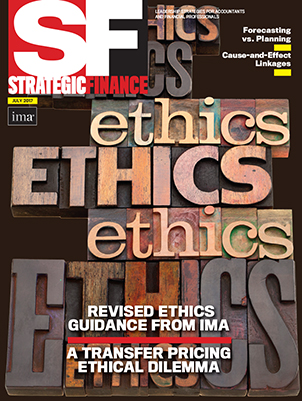In the past few years, United Airlines has seen a number of employee conduct incidents explode into public relations disasters after they went viral on social media. Perhaps the first major debacle was a music video titled “United Breaks Guitars” that showed United baggage workers carelessly handling Canadian musician Dave Carroll’s expensive Taylor guitar during a 2008 layover in Chicago on his flight from Halifax. United admitted the guitar was damaged, but denied any compensation because Carroll hadn’t filed a claim during the required period. Carroll’s fight with United dragged on for years, and by August 2015, the video had reached more than 15 million views.
Then on April 9, 2017, United had another public relations fiasco on its hands as videos recorded by passengers showed a Chicago airport security officer forcibly dragging a resisting passenger from his seat on an overbooked flight. United Express gate personnel had ordered passenger David Dao to be forcibly removed from the plane to make room for a United employee. The videos went viral, with nearly 7 million views in less than a day, and many comments followed deriding United’s feeble initial response.
Two days later, a Wall Street Journal story reported on the broad backlash, particularly voices from China. “This is inherent arrogance,” said Song Hongbing, author of the best seller Currency Wars, on his verified Weibo account. “I don’t think a 69-year-old white doctor would be treated like this.”
UNITED'S CODE
Each of these incidents seem to either violate or fall outside the coverage outlined in the provisions of the United Code of Ethics and Business Conduct, the company’s detailed, prescriptive, and lengthy 24-page document with three appendices, with the only obvious mention of values being the cover slogan of “Connecting integrity to everything we do.”
Two of the appendices to the code are each one-page documents dealing with procedures for employees requesting approval of employment outside the company in the airline industry and employee-owned businesses, both potential conflicts of interest with United. Linking such procedural implementation matters within an ethics code is unusual, as ethics codes don’t generally get involved with procedural matters. The third appendix is a 37-page federal contracts policy covering some of the same topics as the code. This emphasis is apparently due to the fact that regulations issued by the Federal Aviation Administration and other agencies govern many aspects of the aviation industry.
The code states, “By complying with laws and policies we deliver a clean, safe, reliable and competitive product and create a flyer-friendly experience.” Those passengers who witnessed the physical harm inflicted on Dao while he was being forcibly removed at the request of the airline would likely take exception to a “friendly” characterization.
The code section on making ethical decisions states: “Each of us must deal fairly, honestly and ethically with customers, suppliers, competitors, business partners and others with whom we interact.” In the Dao incident, United initially offered customers an $800 voucher to take a flight the next afternoon. No one took that offer. United said that it raised the offer to $1,000 with no response, but it’s unclear whether the increase was communicated to all passengers or only to Dao. Given that, having a paying customer physically ejected from his seat without thoroughly exhausting all other options seems far from fair and ethical. It shows the impact of strict rules meant to compensate for a lack of faith in employee judgment.
RULES VS. VALUES
This column has often described the many benefits of a strong, open, and ethical culture based on appropriate values. Legalistic rules that prescribe specific behaviors limit the actions workers take without adverse consequences. A value-based code of conduct instead gives employees more discretion, letting them adapt to each unique situation as appropriate and choose the best way to demonstrate the desired behavior while also resolving the issue.
The adverse effects of the rules-based and compliance-oriented culture at United Airlines have been well-known for a long time. In 2016, Bloomberg Businessweek chronicled United’s unhappy employees, delayed flights, tech meltdowns, and gifts to public officials. A Wall Street Journal story on April 17, 2017, quoted various sources saying that United employees “are reluctant to make choices not in the ‘book’” and “deviating from the rules is frowned upon—employees can face termination for a foul-up.”
Two professors at Embry-Riddle Aeronautical University published an analytical annual report of the performance quality of U.S. airline companies. Scores are based on 15 elements in four categories that are important to consumers of air travel: on-time arrivals and departures, denied boarding, mishandled baggage, and customer complaints to the U.S. Department of Transportation. While showing improvement, the 27th annual Airline Quality Rating 2017 report shows United next to the bottom of mainline carriers for the past two years and in last place prior to that.
The outcomes of United’s misfortunes are expected to be widespread in the industry, as airlines hurried to change their practices. Both houses of Congress held public hearings to determine whether new regulations should be enacted to motivate better passenger flying outcomes. Several airlines have decided to minimize overbooking. United has agreed to empower gate employees to offer as much as $10,000 to motivate a passenger to give up a seat. Delta increased its maximum incentive to $9,950 for voluntarily relinquishing one’s confirmed seat. As for Dao, it was reported he reached a financial settlement with United for an undisclosed sum.
IMA ETHICS HELPLINE
For clarification of how the IMA Statement of Ethical Professional Practice applies to your ethical dilemma, contact the IMA Ethics Helpline.
In the U.S. or Canada, dial (800) 245-1383. In other countries, dial the AT&T USA Direct Access Number from www.usa.att.com/traveler/index.jsp, then the above number.
The IMA Helpline is designed to provide clarification of provisions in the IMA Statement of Ethical Professional Practice, which contains suggestions on how to resolve ethical conflicts. The helpline cannot be considered a hotline to report specific suspected ethical violations.

July 2017



